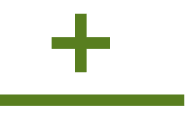The concept of supply chain management in construction was first introduced as a result of capital projects being stretched beyond their timelines. Supply chain management is critical to establishing a strategic procurement schedule and timely deliveries of materials and equipment to maintain overall construction timelines. Having a dedicated supply chain management team helps ensure an efficient procurement management plan is in place and is continuously maintained and updated throughout the life cycle of a project.
Below, we discuss the importance and benefits of streamlining supply chain management in construction and why teaming up with a contractor with supply chain management capabilities can ensure that project materials are readily available based on schedule requirements.
Benefits of Supply Chain Management in Construction
In capital projects, the typical approach to supply chain management involves material supply planning, fabrication and production planning, inventory control and planning, and material distribution forecasting and planning. The key objective of this approach is to ensure that materials and equipment are delivered to construction sites on time as per project requirements. If the supply chain management team is unable to deliver as requested, the delay needs to be communicated to the construction team as soon as possible, and mitigation strategies should be developed and implemented to work around the delay.
Supply chain management in construction offers the following benefits in capital project management:
Shortened Lead Times of Equipment and Materials
Implementing supply chain management practices in construction helps identify long lead time equipment purchases in advance and lets the project owner and contractor work towards ensuring delivery time certainty while improving processes to reduce fabrication durations. By mitigating late purchasing and fabrication of items with long lead times, supply chain management significantly improves the construction schedule.
Standardized Products
Manufacturers or suppliers providing standardized construction materials allow for greater manufacturing efficiency, fewer design reviews, and fewer approval cycles by project owners and contractors, resulting in reduced lead and procurement times.
Supplier-Managed Inventory
A supplier-managed inventory is an equipment and materials planning and replenishment process that allows a supplier to have shared access to a contractor’s inventory. Sharing inventory data with suppliers can help reduce procurement times, as the supplier is already aware of what materials and equipment are needed and can schedule deliveries as necessary. This also reduces the administrative efforts of the project owner or contractor and offers greater flexibility in warehousing.
Another added benefit is the establishment of a good working relationship with a preferred supplier, which can further improve procurement management and project schedules.
Improved Supplier Relationships
Streamlining supply chain management in construction encourages forming relationships with key suppliers. Preferred suppliers are often selected and added to an Approved Manufacturers List (AML) for use by the contractor. To properly vet a trustworthy and reliable supplier, it’s important to assess their past performances. This is usually accomplished through a Supplier Qualification Program, which surveys performance risks such as quality control standards, site and facilities management, and employee training and competency.
Initiating a preferred supplier relationship assures the supply of owner-approved materials with just-in-time deliveries that reduce internal overhead costs as well as overall costs of the project.
Pre-Project Procurement
Pre-project procurement can significantly improve the lead times of engineered-to-order (ETO) equipment. Software and tools such as Enterprise Resource Planning (ERP) systems and material management systems help integrate supply chain management in construction. Material management systems identify and manage material quantities, construction priorities, purchase order quantities, and receipt quantities while providing accurate project reporting for material status and work forecasting, expediting databases, and inspection management. Though these tools are instrumental in implementing supply chain management best practices in capital projects, there are a few overlooked aspects that project owners need to consider while streamlining supply chain management in construction:
- Detailed advanced planning for permanent materials: Creating a detailed procurement plan in advance of the project and schedule dates for engineering deliverables to support the required on-site dates
- Commercial negotiations and requirements: Negotiating with suppliers, vendors, and manufacturers to get the best quotes on construction materials and equipment that meet the approved quality standards
- Pre-shipment inspection: Identifying pre-shipment inspection requirements to ensure quality assurance of the available resources at the time of shipment
- Preservation and storage of items after receipt at the site: Ensuring proper material storage and preservation of equipment in good working order before construction begins
- Global logistics requirements and compliance: Advanced planning of logistical resources as per local and global logistics compliance regulations to ensure ready availability of ships, planes, or trucks as per the planned shipping dates
- Site management of material: Ensuring material is on-site when required and is distributed in accordance with the schedule and work package priorities
Selecting a Contractor with Supply Chain Management Capabilities
At H+M Industrial EPC, our highly experienced supply chain management team works with our in-house construction team to ensure on-time deliveries and maintain project timelines. Our dedicated supply chain management experts have in-depth knowledge of pipes, valves, fittings, mechanical equipment, electrical materials, and instrumentation. Our procurement management solutions facilitate seamless supply chain management to drive project success.

The H+M Industrial Team
For over three decades, we have provided best-in-class capital project management services to Energy and Chemical industries through our proven EPC approach. We are dedicated to providing trust, experience, and efficiency through all stages of engineering, procurement, and construction--on budget and on time.

Partnering with H+M Modular
H+M Modular, a division of H+M Industrial EPC, specializes in custom fabricated equipment, modules, and skids for energy and chemical industries. The approach emphasizes the potential for decreased risk through more controlled fabrication, leading to enhanced quality and safety, reduced labor costs and construction times, improved labor availability, and solutions to geographic challenges. We are dedicated to providing trust, experience, and efficiency through all stages of traditional and modular construction projects using our proven EPFC approach, If you're considering modular fabrication, we invite you to connect with us to learn about how modular solutions can improve project outcomes.





